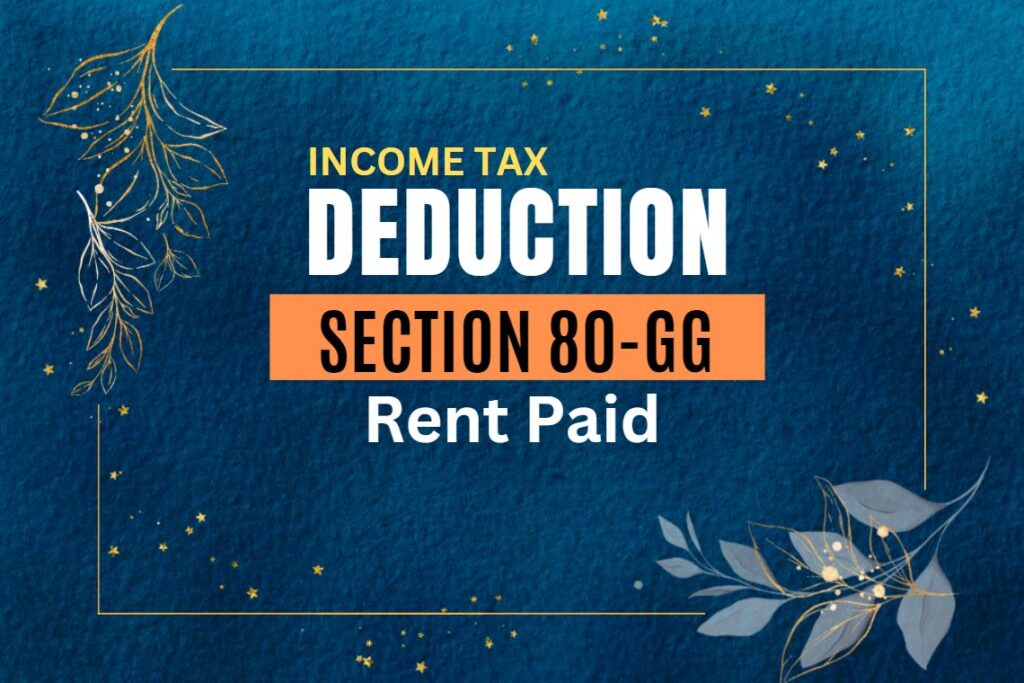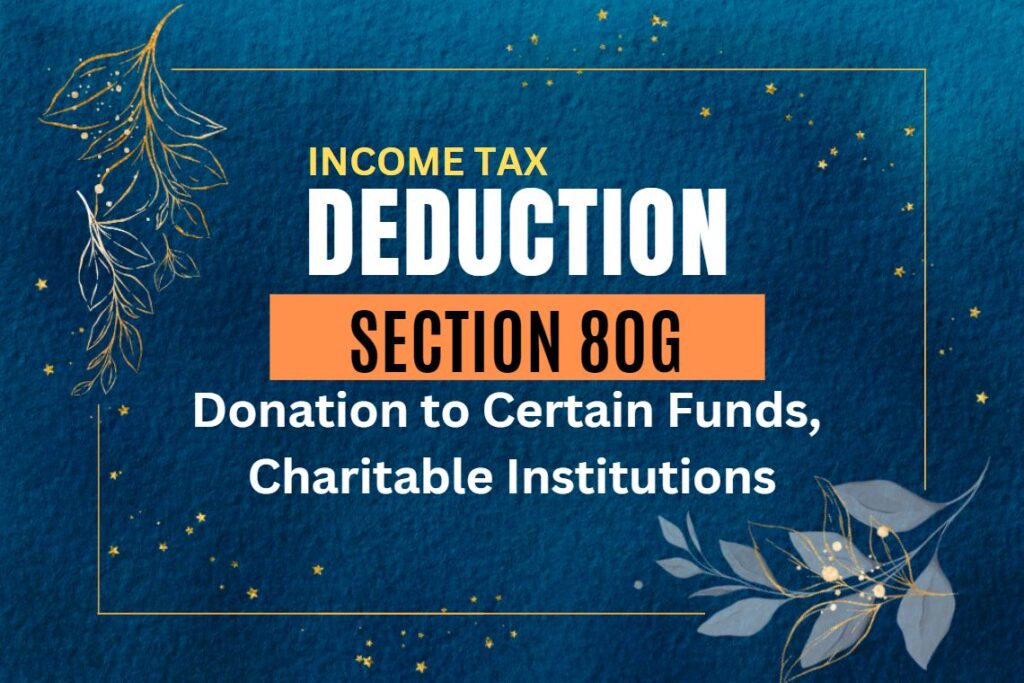1. Understanding of Section 80-IBA
Section 80-IBA of the Income Tax Act, 1961, provides a deduction in respect of profits and gains from housing projects. This section was introduced to promote the development of affordable housing in India and incentivize builders and developers to participate in this crucial sector.
Eligibility Criteria
To avail the benefits of Section 80-IBA, a housing project must fulfill certain criteria:
- The project should be approved by the competent authority between June 1, 2016, and March 31, 2022.
- The carpet area of the houses should not exceed 60 square meters in metropolitan cities and 90 square meters in non-metropolitan cities.
- The project should be completed within five years from the end of the financial year in which the approval was granted.
Deduction Amount
The amount of deduction available under Section 80-IBA is calculated as follows:
- For projects located in the metropolitan cities, a deduction of 100% of the profits and gains derived from the eligible housing project is allowed for a period of Five (5) consecutive assessment years.
- For projects located in non-metropolitan cities, a deduction of 100% of the profits and gains derived from the eligible housing project is allowed for a period of Seven (7) consecutive assessment years.
Conditions for Availing Deduction
While Section 80-IBA provides a lucrative deduction, there are certain conditions that need to be fulfilled:
- The project should be completed within the specified time frame.
- The project should be sold to individual buyers and not to companies or firms.
- The project should not be transferred to any other person before the expiry of the specified time frame.
Section 80-IBA of the Income Tax Act, 1961, has played a crucial role in promoting affordable housing in India. The deduction provided under this section has incentivized builders and developers to contribute to this important sector, leading to increased supply and affordability. It is a significant step towards fulfilling the dream of every Indian to own a house.
2. [Section 80-IBA(1)]: 100% Deduction of Profit from Housing Projects
Where the gross total income of an assessee includes any profits and gains derived from the business of developing and building housing projects, there shall, subject to the provisions of this section, be allowed, a deduction of an amount equal to 100% of the profits and gains derived from such business provided the project fulfils the conditions mentioned in section 80-IBA(2).
To help migrant labourers and to promote affordable rental, the Finance Act, 2021 has allowed deduction by inserting sub-section (1A) under section 80-IBA also to such rental housing project which is notified by the Central Government in the Official Gazette and fulfils such conditions as specified in the said notification.
The new sub-section (1A) provides as under:
100% Deduction of Profit the Business of Developing and Building Rental Housing Project [Section 80-IBA(IA)]:
Where the gross total income of an assessee includes any profits and gains derived from the business of developing and building rental housing project, there shall be allowed a deduction of an amount equal to 100%. of the profits and gains derived from such business.
| “Rental housing project” means a project which is notified by the Central Government in the Official Gazette under this clause on or before 31.3.2022 and fulfills such conditions as may be specified in the said notification;’ |
3. [Section 80-IBA(2)]: Conditions to be Fulfilled
For the purposes of section 80-TBA(1), a housing project shall be a project which fulfils the following conditions, namely:—
(a) the project is approved by the competent authority after 1.6.2016, but on or before 31.3.2022;
(b) the project is completed within a period of 5 years from the date of approval by the competent authority:
(i) where the approval in respect of a housing project is obtained more than once, the project shall be deemed to have been approved on the date on which the building plan of such housing project was first approved by the competent authority; and
(ii) the project shall be deemed to have been completed when a certificate of completion of project as a whole is obtained in writing from the competent authority.
(c) the carpet area of the shops and other commercial establishments included in the housing project does not exceed 3% of the aggregate carpet area;
(d) the project is on a plot of land measuring not less than—
(i) 1000 square metres where such project is located within the cities of Chennai, Delhi, Kolkata or Mumbai, or
(ii) 2000 square metres where the project is located in any other place;
(e) the project is the only housing project on the plot of land as specified in clause (d) above; (f) the carpet area of the residential unit comprised in the housing project does not exceed—
(i) 30 square metres where such project is located within the cities of Chennai, Delhi, Kolkata or Mumbai; or
(ii) 60 square metres, where the project is located in any other place;
(g) where a residential unit in the housing project is allotted to an individual, no other residential unit in the housing project shall be allotted to the individual or the spouse or the minor children of such individual;
(h) the project utilises—
(i) not less than 90% of the floor area ratio permissible in respect of the plot of land under the rules to be made by the Central Government or the State Government or the local authority, as the case may be, where the project is located within the cities of Chennai, Delhi, Kolkata or Mumbai, or
(ii) not less than 80% of such floor area ratio where such project is located in any place other than the place referred to in sub-clause (i); and
(i) the assessee maintains separate books of account in respect of the housing project.
(3A) Conditions mentioned in clauses (d) to (i) above have been substituted by the following conditions in respect of projects approved on or after 1.9.2019 [W.e.f. A.Y. 2020-21]
The Finance (No. 2) Act, 2019 has substituted the conditions mentioned in clauses (d) to (i) above by the following conditions given in clauses (d) to (j) below in respect of projects approved on or after 1.9.2019:
(a) the project is on a plot of land measuring not less than—
(i) 1000 square metres, where such project is located within the metropolitan cities of Bengaluru, Chennai, Delhi National Capital Region (limited to Delhi, Noida, Greater Noida, Ghaziabad, Gurugram, Faridabad), Hyderabad, Kolkata and Mumbai (whole of Mumbai Metropolitan Region); or
(ii) 2000 square metres, where such project is located in any other place;
(b) the project is the only housing project on the plot of land as specified in clause (d);
(c) the carpet area of the residential unit comprised in the housing project does not exceed—
(i) 60 square metres, where such project is located within the metropolitan cities of Bengaluru., Chennai, Delhi National Capital Region (limited to Delhi, Noida, Greater Noida, Ghaziabad, Gurugram, Faridabad), Hyderabad, Kolkata and Mumbai (whole of Mumbai Metropolitan Region); or
(ii) 90 square metres, where such project is located in any other place;
(d) the stamp duty value of a residential unit in the housing project does not exceed Rs.45,00,000;
(e) where a residential unit in the housing project is allotted to an individual, no other residential unit in the housing project shall be allotted to the individual or the spouse or the minor children of such individual;
(f) the project utilises—
(i) not less than 90% of the floor area ratio permissible in respect of the plot of land under the rules to be made by the Central Government or the State Government or the local authority, as the case may be, where such project is located within the metropolitan cities of Bengaluru., Chennai, Delhi National Capital Region (limited to Delhi, Noida, Greater Noida, Ghaziabad, Gurugram, Faridabad), Hyderabad, Kolkata and Mumbai (whole of Mumbai Metropolitan Region); or
(ii) not less than 0% of such floor area ratio where such project is located in any place other than the place referred to in sub-clause (i); and
(g) the assessee maintains separate books of account in respect of the housing project.
| Nothing contained in this section shall apply to any assessee who executes the housing project as a works-contract awarded by any person (including the Central Government or the State Government). [Section 80-IBA(3)] |
4. [Section 80-IBA (4)]: Consequences if the project is not completed within a period of 5 years from the date of approval
Where the housing project is not completed within the period specified under section 80-IBA(2)(b) (i.e., 5 years) and in respect of which a deduction has been claimed and allowed under this section, the total amount of deduction so claimed and allowed in one or more previous years, shall be deemed to be the income of the assessee chargeable under the head “Profits and gains of business or profession” of the previous year in which the period for completion so expires.
| Section 80-IBA(2)(b) of the Indian Income Tax Act, 1961 specifies the conditions that must be met in order to claim a deduction under Section 80-IBA for profits and gains derived from the business of developing and building housing projects.
One of the conditions is that the housing project must be completed within a period of three years from the date of approval by the competent authority. However, Section 80-IBA(2)(b) provides for an extension of this period in certain cases. The extension is available for housing projects that are affected by any of the following factors: · Force majeure, such as natural disasters, wars, or civil unrest. · Government delays, such as delays in obtaining approvals or permissions. · Other unforeseen circumstances beyond the control of the assessee. To claim the extension, the assessee must apply to the competent authority within six months of the expiry of the three-year period for completion of the housing project. The competent authority will grant the extension if it is satisfied that the delay was due to any of the factors listed above. The maximum extension that can be granted is two years. This means that the assessee will have a total of five years to complete the housing project from the date of approval by the competent authority. It is important to note that the extension is available only for the purpose of claiming the deduction under Section 80-IBA. It does not extend the period for completion of the housing project under any other law or regulation. |
5. [Section 80-IBA(5)]: Deduction under any other Provisions of the Act Not Allowed if the same is claimed under this section
Section 80-IBA(5) was introduced to promote the development of affordable housing projects in India. It allows developers to claim a deduction of 100% of the profits derived from such projects, subject to certain conditions. This deduction is available for a period of five years, starting from the year in which the project is completed and the certificate of completion is obtained.
While Section 80-IBA(5) provides a generous deduction for affordable housing projects, it also restricts the taxpayers from claiming the same deduction under any other provisions of the Act. This means that if a developer chooses to claim the deduction under Section 80-IBA(5), they cannot claim any other deductions that may be available for the same project under other sections of the Act.
For example, if a developer qualifies for a deduction under both Section 80-IBA(5) and Section 80-IB, they will have to choose only one of the deductions. They cannot claim both deductions for the same project.
This restriction is aimed at preventing taxpayers from double-dipping and claiming excessive deductions for the same project. It ensures that the tax benefits provided under the Act are balanced and fair.
Section 80-IBA(5) of the Income Tax Act provides a valuable deduction for affordable housing projects. However, taxpayers must be aware that claiming this deduction will preclude them from claiming any other deductions for the same project under other provisions of the Act.
It is important for taxpayers to carefully evaluate their options and choose the deduction that provides the maximum benefit.











